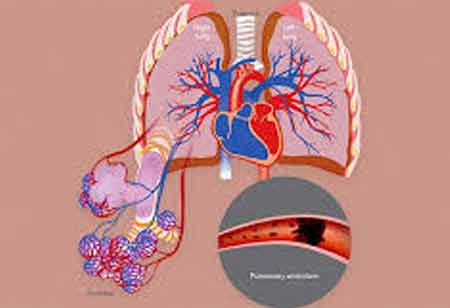Managing Life with Idiopathic Pulmonary Fibrosis
Idiopathic Pulmonary Fibrosis (IPF) is a chronic condition characterized by the thickening and scarring of lung tissue,

By
Medical Care Review | Thursday, June 20, 2024
Stay on top of your health and well-being with exclusive feature stories on the top medical clinics and treatment centers, expert insights and the latest news delivered straight to your inbox. Subscribe today.
The journey with IPF is not easy, but with the proper care and support, patients can navigate their path with strength and resilience.
Fremont, CA: Idiopathic Pulmonary Fibrosis (IPF) is a chronic condition characterized by the thickening and scarring of lung tissue, leading to progressive and irreversible decline in lung function. Despite its daunting nature, understanding and managing IPF can significantly improve patients' quality of life.
Symptoms and Diagnosis
Patients with IPF often experience a persistent cough, unexplained weight loss, and shortness of breath. Diagnosis involves a thorough medical history review, physical examination, and various tests such as chest X-rays, CT scans, lung function tests, and sometimes tissue samples.
The Journey of Treatment
While there is no cure for IPF, treatment options focus on slowing the disease's progression and enhancing life quality. Antifibrotic drugs like nintedanib are standard treatments, and ongoing clinical trials are evaluating new therapies. Patients are advised to keep track of symptoms, attend regular checkups, and avoid smoking.
Living with IPF
Living with IPF requires adapting to the condition's limitations. Patients are encouraged to engage in pulmonary rehabilitation, including exercise training, nutritional counseling, and disease management education. Support from healthcare professionals, family, and support groups can provide the necessary emotional and practical assistance.
The Future of IPF Management
Research continues to advance in the field of IPF, with the development of new treatments and the identification of biomarkers for personalized care. Patients and caregivers hope these advances will improve management strategies and outcomes. Clinical trials are also being conducted to evaluate the efficacy of novel therapies and interventions for IPF. These efforts aim to improve the quality of life and increase survival rates for individuals with this progressive lung disease.
While IPF presents significant challenges, a proactive approach to management, combined with medical advancements, offers hope and support to those affected by this condition. The journey with IPF is not easy, but with the proper care and support, patients can navigate their path with strength and resilience.







